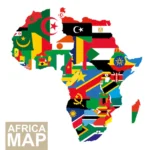Lai Mohammed, a former Minister of Information and Culture, has urged African writers to embrace indigenous languages in order to reclaim their history and cultural identity.
Mohammed, who is also the Managing Partner of a leading strategic policy communications and government affairs firm, Bruit Costaud, made the call as the chairman of one of the panel sessions at the ongoing World Organization of Writers Congress, on Thursday in Abuja
He emphasized that language is not only a means of communication, but also a reflection of a people’s heritage and values.
Mohammed pointed out that the dominance of foreign languages in African literature has led to the neglect of indigenous languages, causing a loss of cultural identity and historical knowledge.
- Social Media Regulation Necessary To Tackle Fake News, Anti-State Groups –Lai Mohammed
- Nigeria on a challenging path, says Tinubu
He highlighted the role of literature in shaping the narrative of Africa and challenging stereotypes and misconceptions about the continent.
He called on African writers to be bold and innovative in their storytelling, using indigenous languages to connect with their audience and educate them about their history and traditions.
The former minister said: “Africa, with its rich tapestry of languages, cultures, and traditions, has long been a source of inspiration for writers around the world. From the ancient oral traditions passed down through generations to the contemporary voices shaping the literary landscape, African literature continues to captivate and enthrall audiences with its depth, diversity, and resonance.
“Today, as we convene to explore the intersections of African literature with the global literary community, we embark on a journey of discovery, dialogue, and mutual enrichment. Through panel discussions, readings, and the question and answer session, we will delve into the myriad themes, narratives, and experiences that define the African literary landscape and its interconnectedness with the wider world.
“May I use this occasion to urge our writers, particularly those from Africa, to embrace and champion the rich tapestry of indigenous languages that weave through our world. In a global landscape dominated by dominant languages, the voices of indigenous communities often go unheard, their stories left untold.
“As writers, you have a unique opportunity and responsibility to amplify these voices, to breathe life into languages that are at risk of fading into obscurity. Our pens, our keyboards – they are not just tools of expression; they are instruments of preservation and empowerment.
“When we write in indigenous languages, we are not just creating literature; we are reclaiming history, honouring tradition, and empowering communities. We are also giving voice to those who have been silenced.
“From available statistic, about 90% of those who won the coveted Nobel Prize in Literature, especially from the non-English-speaking countries, wrote their books in indigenous languages. This statistic underscores the richness and depth of indigenous languages in shaping global literary landscapes. It highlights the importance of preserving and promoting linguistic diversity, as well as the invaluable contributions of indigenous writers to the world of literature
“Let us seize this opportunity to amplify diverse voices, challenge prevailing narratives, and champion the transformative power of literature to shape hearts and minds.”
He commended notable literary giants for putting Nigeria on the global map of literature such as Nobel Laureate Prof. Wole Soyinka, Chinua Achebe, Chimamanda Ngozi Adichie, Buchi Emecheta, Ben Okri, Abubakar Gimba, among others.
He welcomed host writers from Nigeria and other African countries and parts of the world, who read from their works and explained the meanings of the work to the audience in a panel discussion.
“Of course, we all know that there is always a meaning behind any literary work – either fictional or non-fictional,” he said.

 Join Daily Trust WhatsApp Community For Quick Access To News and Happenings Around You.
Join Daily Trust WhatsApp Community For Quick Access To News and Happenings Around You.

